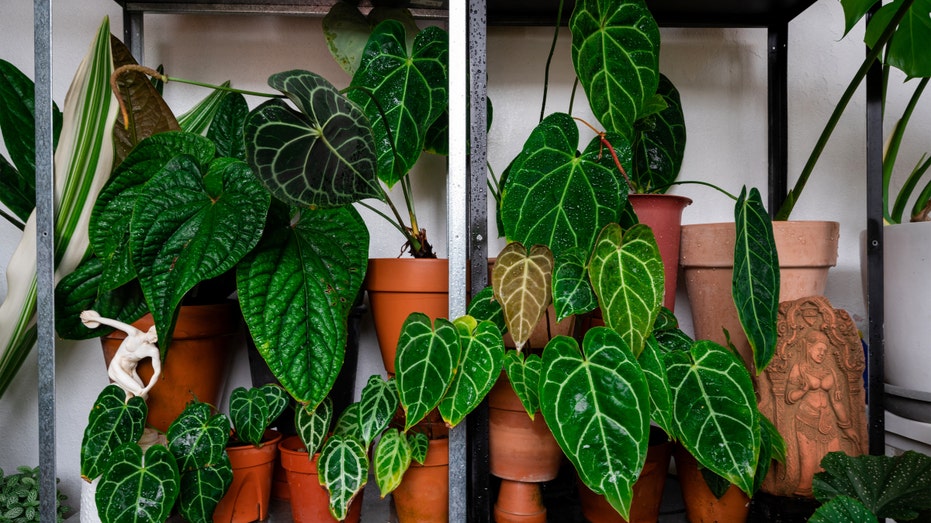WaPo article suggesting houseplant ownership could be bad for planet takes heat: Stop the 'doom-mongering'
Stanford's Hoover Institute fellow Bjorn Lomborg said 'innovation' is the key to solving climate change
Bjorn Lomborg blasts WaPo article suggesting houseplants are harming climate: Stop the 'doom-mongering'
Stanford's Hoover Institute fellow Bjorn Lomborg responds to a Washington Post article alleging that houseplants are bad for the planet.
Perhaps not all aspects of having a green thumb are so "green" after all, according to a recent article published in The Washington Post.
"The trucks that transport plants spew carbon emissions, plastic pots and synthetic fertilizers are made from petroleum and the harvesting of soil components like peat can tear up slow-forming habitats," the article, written by climate solutions reporter Nicolás Rivero, says.
But the premise took heat from some, including Bjorn Lomborg, a Danish author and fellow at Stanford's Hoover Institute, who told "Fox & Friends Weekend" he found it "silly."

A Washington Post article published earlier this month noted some aspects of houseplant ownership are harmful for the planet. (MOHD RASFAN/AFP via Getty Images / Getty Images)
"Look, you're not going to solve climate change by telling people to be poor and be colder, be less comfortable, fly less, drive less. Now, have less plants. You're going to do this [fix climate change] through innovation," he said on Sunday.
"So stop with this sort of doom-mongering and start thinking about what really works. Innovation is what's going to work."
JOHN KERRY PLEDGES TO SLASH EMISSIONS FROM AC UNITS, REFRIGERATORS TO FIGHT CLIMATE CHANGE
Rivero's article doesn't call for reducing the number of plants owned but, rather, suggests choosing certain types of plants over others. It also called for employing some methods that could make the plant-growing process more environmentally friendly - including finding plants locally through garden clubs or "local plant swaps" to reduce carbon emissions, or opting for biodegradable pots if looking for a disposable option.

The Washington Post Co. headquarters stands in Washington, D.C., U.S., on Monday, Aug. 5, 2013. (Andrew Harrer/Bloomberg via Getty Images / Getty Images)
Rivero even highlights that plants can be helpful in ways, including by "improv[ing] air quality," but urges those just beginning the hobby to opt for plants more in their comfort zone to reduce waste or plant deaths.
"Fox & Friends Weekend" co-host Will Cain, speaking to Lomborg, asked about the article's points on the carbon footprints made by emissions and plastic pots.
"These are tiny, tiny things… this will not solve the problem. The real way you're going to solve this is by majorly changing technology. If, say, fourth-generation nuclear was cheaper than fossil fuels, everyone would switch. Not just rich, well-meaning Americans, but also the Chinese, the Indians and the Africans, which are the ones that are really going to matter for this century."
Cain also asked Lomborg about climate change activists' "ideal version of the planet."
EIGHT YEARS? NINE YEARS? SIX YEARS AGO? A CLIMATE CHANGE ACTIVIST GUIDE TO DOOMSDAY
Bjorn Lomborg on innovation combatting climate change: Bill Gates is absolutely right
Copenhagen Consensus President Bjorn Lomborg on Bill Gates claiming innovation will combat climate change, a carbon tax and U.K. Prime Minister Rishi Sunak delaying the ban on gas cars until 2035.
"What is this? This is the underlying presumption to the climate change argument that there is something we need to preserve. When was it born? What's the perfect planet we're trying to preserve?" he asked.
Lomborg replied, "Obviously, most nations around the world wouldn't agree on where we should set the thermostat for the world. The real point here is to remember that we've all adapted to what used to be in the past. So all our infrastructure in cold Sweden, where I'm right now, or in warm Florida, we have adapted with different infrastructure. That's why it's costly whenever temperature changes, if it gets colder or warmer, so there is a real problem."
"But the point here is, you're not going to solve this by telling people, would you mind being a lot poorer? You can solve this through technology. You're going to solve this through innovation."
GET FOX BUSINESS ON THE GO BY CLICKING HERE
When reached for comment, a Post spokesperson told Fox News Digital, "The Post is dedicated to covering a wide range of climate-related topics, from individual choices on a personal level for a more sustainable lifestyle to much larger reaching subjects such as climate policy on national and international levels."
Biden says climate change is 'existential threat' to humanity
Rep. Beth Van Duyne, R-Fla., says President Biden is in 'La La Land' and should be partnering with India to push back on China on 'The Bottom Line.'























